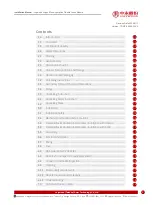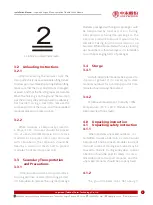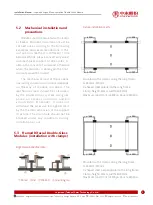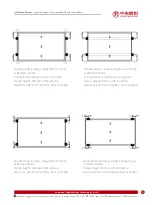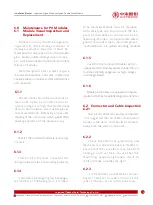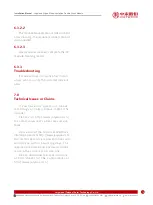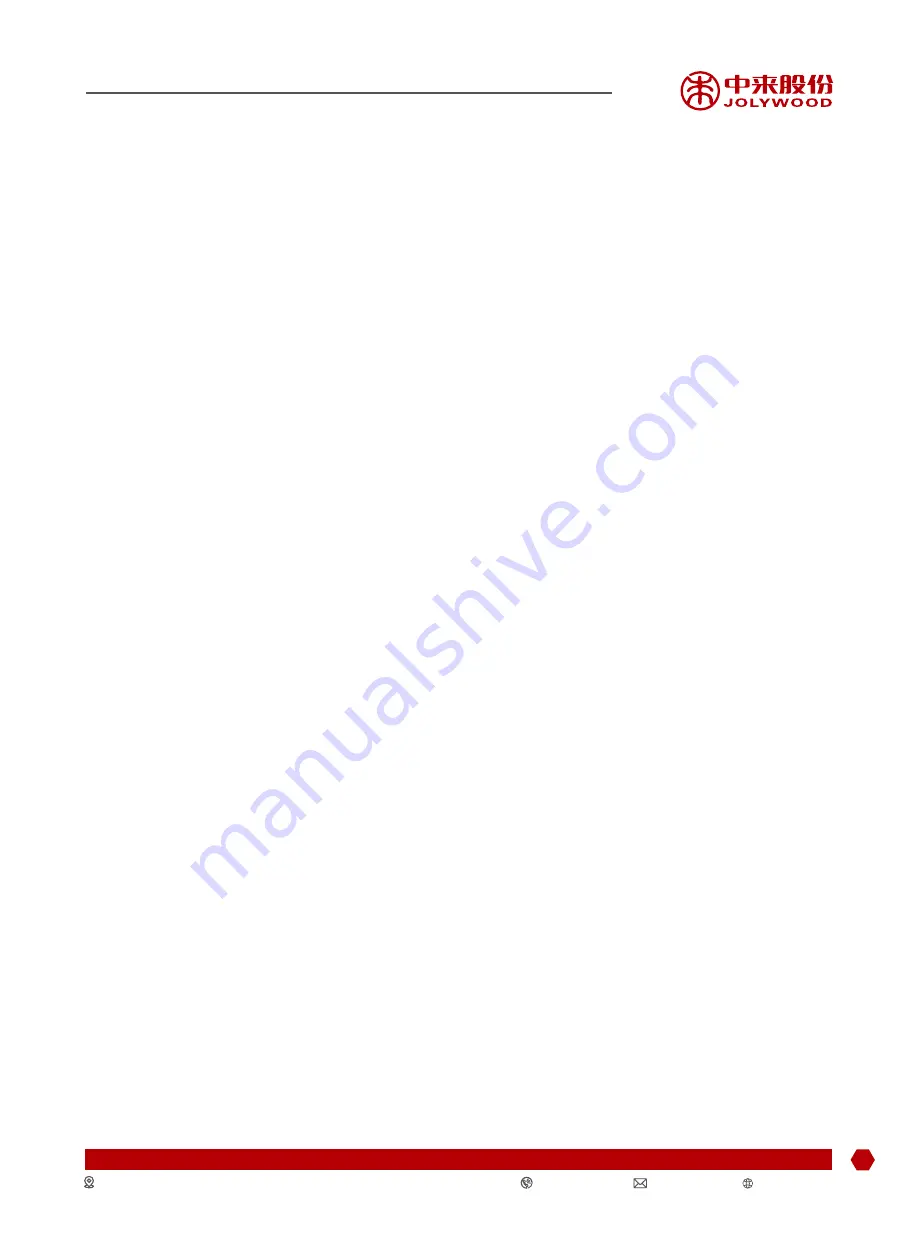
6.3.2.1
The overall appearance of modules is
clean, bright and free of stains. The surface
of module should no ash accumulation;
there is no obvious scratch on the surface
of module. No cracking occurs on the
surface of module.
6.3.1
Water quality requirements
PH: 5 ~7;
Chloride or salt content :0 - 3,000 mg/L
Turbidity:0-30 NTU
Conductivity:1500~3000 μs/cm
Total dissolved solids:≤1000 mg/L
Water hardness:0-40 mg/L
Non-alkaline water must be used, use demineralized
water when conditions are available.
6.3.2 Module inspection after
cleaning
6.2.4
The dustproof plug should not be removed
in advance, it can only be removedduring
installation.
The amount of electricity produced by
a solar module is proportional to the amount
of light that falls on it. A battery-blocked
component produces relatively little power,
so it is important to keep the components
clean.
a) The PV module should be cleaned
under the irradiance of less than 200W/m2
. Avoiding cleaning water with great different
temperature from air to avoid cracking. Hard
water needs to be softened. The water remains
should be removed from glass surface after
cleaning.
b) It is strictly forbidden to clean PV
modules under meteorological conditions
where the wind is greater four, heavy rain
or heavy snow.
c) During cleaning, the water pressure
on the surface of module glass shall not
exceed 700 kPa (14619.80 lb/ft2), and the
module is not allowed to withstand additional
external force.
such as oil on the surface of modules, use
a non-friction neutral liquid cleaner. Do not
use any organic solvent containing alkali or
acid. Do not use corrosive solvents or wipe
the PV modules with a hard object.
f) If you are not sure whether the array
need to cleaned, first select a column of pa-
rticularlydirtyarray to begin cleaning. If the
power generated increased less than 5%,
cleaning is usuallynotrequired. The above
verification should be carried out only under
a stable sunshinerate(sunny,strong sunshine,
no cloud).
g) Regularly trim the vegetation to prevent
shading created on the module surface,
whichwoulddecrease power generation.
d) During cleaning, it is strictly forbidden
to step on the modules, splashing water to
the back of the modules or cables. Ensure
that connectors are clean and dry to prevent
electric shock and fire hazard. Steam clean
machines are strictly prohibited; soft parts,
Cloth and mild detergent and water should
be used. Do not put modules directly into the
water. Serious thermal shocks also could
damage modules.
e) The difficult-to-clean substances
6.3 Cleaning
15
Jolywood (Taizhou) Solar Technology Co.,Ltd.
Kaiyang Rd., Jiangyan Economic Development zone, Taizhou City, Jiangsu Province, P. R. China
www.jolywood.cn
+86-523-8061 2361
Installation Manual
- Jolywood N-type Mono-crystalline Double Glass Module


